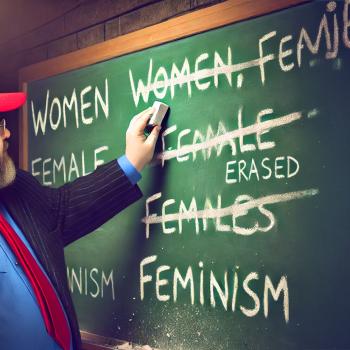So, I was just reading a book review that was titled, “On the Failure of Others.”The review started this way:
If you hope Richard H. Smith’s book [Joy of Pain: Schadenfreude and the Dark Side of Human Nature] is a flop because you’re certain you could write a better one, and because you think he’s due for a fall, he will understand.
Such factors are at the core of a complex sentiment: schadenfreude.
Well, who could resist reading a book like that (OK, I resisted—my pile of unread books threatens to overwhelm both my e-reading device and my bookshelves)? But the definition of this long word is simple: we find pleasure at the misfortunes of others.
The reviewer reminds readers of one famous New Yorker cartoon that had two well-dressed dogs sitting at a bar saying, “It’s not enough that we succeed. Cats must also fail.”
That captures it.
I see this characteristic in others and also in myself: a kind of glee when others, especially the mighty, are brought down.
Many, if not most, share in this guilty pleasure. Those failures supply great gossip fodder. With our instant, fire-hose supply of news sources these days, in ten minutes for the shenanigans of someone famous can reach the entire world. And we savor it. Yes we do.
Schadenfreude: it speaks right to one of the Seven Deadly Sins: envy.
Why don’t those seven deadly sins don’t get much press these days? The traditional list includes wrath, greed, sloth, pride, lust, envy, and gluttony. Perhaps we have found a new spin on all that makes them more than acceptable.
Wrath: We are full of “righteous” anger after all, no matter that we routinely denigrate others with it.
Greed: Because refuse to define “enough,” our drive to acquire more for the sake of unreachable security excuses us to ignore the plight of the suffering.
Sloth: We are so stressed, after all! So why should we be bothered with routine and boring chores like attentive child-rearing or paying bills on time or making sure we develop the habit of boring church services and times of private prayer?
Pride: “Self-esteem” has become the national good, no matter that the self-esteem movements results in seriously unreasonable views of ourselves. Our national hubris and self-deception make us anathema to others.
Lust: Our mantra has long been “if it feels good, do it.” The idea of self-restraint in anything sexual has disappeared. Is not that what all media teaches us? You like someone? Hop into bed with them. Porn? Who does it hurt after all? As for pedophilia–just give us a few more years and it will be completely acceptable to the masses.
Envy–the source of this big word, schadenfreude–So what if it shrinks the human soul and we lose rich creativity, no longer seeking to reach our best? We have to spend energy taking others down instead.
And finally, gluttony. Do we know how much food we consume? Another book I’ve been reading, The Blue Zone, records superb research among those who live well into their 90’s, and do so with little or no lessening of vitality, strength and mental acuity.
A commonality that leaps off the page of the accounts of those long-lived ones: they eat very, very little and all of it is fresh and nutritious. All of it. The moment processed food, utterly caloric laden but with few nutrients, invade the societies, longevity takes a nose-dive. But we happily bury ourselves under huge portions of industrially produced foods and then wonder why we are an increasingly ill society.
Schadenfreude: the opposite of the biblical call to us: caring for the lost, the littlest, the least and the last. Jesus said, “The one who needs to be first shall be last. But the last (the one whose downfall brings us such pleasure), will indeed be first.”
















